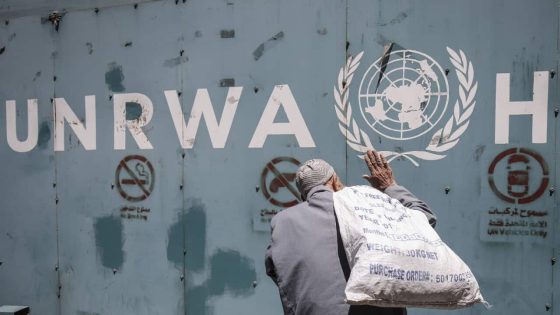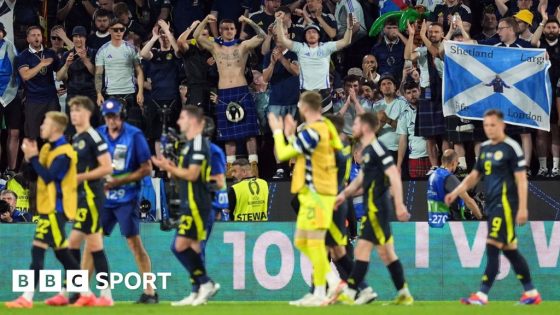Canadians Melissa Humana-Paredes and Brandie Wilkerson advanced to the knockout round of the Paris Olympics beach volleyball tournament, defeating Marie-Sára Štochlová and Barbora Hermannová from the Czech Republic in straight sets late Saturday night.
Earlier in the evening, the Canadian duo fell to Latvia’s Tina Graudina and Anastasija Samoilova in their final pool stage match, forcing them into the lucky loser round.
They rebounded strongly, winning 21-15, 21-12 at Eiffel Tower Stadium.
“It’s a new tournament now. Whatever happened is in the past and now we just move forward,” said Wilkerson, who also emerged from the lucky loser bracket at the Tokyo Games to upset a third-seeded American team.
“When you’re having a hard go… it really helps lean into the gratitude of what we’re doing here and to be able to show up and appreciate just what that moment is.”
Canada will now face the American pairing of Taryn Kloth and Kristen Nuss in the round of 16 on Monday at 12 p.m. ET.
Japan beat France in the other women’s lucky loser matchup, eliminating the last of the host teams from the tournament.
WATCH | Canada’s top women’s beach volleyabll pair advances to round of 16:
Watch women’s beach volleyball action as Canada’s Melissa Humana-Paredes and Brandie Wilkerson take on Barbora Hermannova and Marie-Sara Stochlova in the Olympic women’s lucky loser round.
On the men’s side, Canada’s Dan Dearing withdrew from their lucky loser match after three points because of a back injury.
“That’s part of sport. Sometimes injuries happen. Obviously horrific timing,” said Dearing’s partner, Sam Schachter. “It’s a nightmare for Dan and me and we want to be able to share that moment with our families and the crowd and get that Olympic spirit. But, obviously, it didn’t happen today.”
Dearing sustained the injury during practice on Saturday morning. He and Schachter took the sand for the match that pits third-place teams from pool play against each other to fill out the final spots in the round of 16.
<a href=” 🚨 Schachter/Dearing 🇨🇦 ended their Olympic run after an injury to Dearing during the match vs Chile today💔<br><br>En raison d’une blessure, Sam et Dan ont mis fin à leur parcours olympique après avoir déclaré forfait pour leur match contre le Chili. <a href=” <a href=”https://t.co/TnkcRcR8sp”>pic.twitter.com/TnkcRcR8sp</a>
—@VBallCanada
After three points, with Chile winning two, it became obvious to Dearing that he couldn’t continue.
“Obviously, we’re frustrated,” Schachter said. “We want to be able to compete. It’s super disappointing that we weren’t able to get Dan’s back to a place where he can compete. But we really tried our hardest.”
Chile advances to the round of 16 against one of the pool winners. Esteban Grimalt, who teams with his cousin, Marco Grimalt, said the teams are friends who trained together when they first arrived in Paris.
“It’s not the best way, of course. It’s a shame,” Esteban Grimalt said. “It was really unexpected and really sad, actually, because we saw the pain — not just the physical pain, also the emotional pain. And it’s hard to see a friend like that. So we hope, fast recovery and play again and in the next years.”
Evenepoel survives mechanical issues, wins gold
Remco Evenepoel became the first rider to sweep the Olympic men’s road race and time trial on Saturday, relentlessly attacking over three climbs of Montmartre and building such a lead on the run-in to the finish at the Pont d’Iena that the Belgian rider was able to overcome a mechanical problem in the final kilometres.
He raised his arms in triumph as he crossed the bridge of the Seine, then stopped at the finish line to soak in the cheers at the Paris Games.
The two medals for France were its first in the men’s Olympic road race in 68 years.
Evenepoel, who won the time trial through the rain a week ago, had more than a minute on his pursuers as he was passing in front of the Louvre. The 24-year-old from Flanders suddenly threw up his arm for help, got off his bike and screamed to his team for the spare. They had it ready, Evenepoel got back aboard with only a few seconds lost, and was on his way.
The win capped a spectacular few weeks for Evenepoel that began with his third-place finish in the Tour de France.
WATCH l Evenepoel wins gold after late scare:
In the men’s road race at the Paris Olympics, the longest race in Olympic history at 272 kilometres long, Belgian cyclist Remco Evenepoel suffered a blown tire with less than four kilometres to go, before getting a bike change and continuing on to win gold.
Ottawa’s Mike Woods finished 41st with a time of 6:26:57, while Derek Gee of Osgoode, Ont., was 44th in the same time.
The early breakaway of five riders formed quickly Saturday after the neutralized start from the Trocadero, where fans gathered in the shadow of the Eiffel Tower to see them off. With no real threats among them, the peloton was content allowing the break to build a sizeable gap of more than 14 minutes as the riders headed into the French countryside.
They passed the Palace of Versailles, where the Olympic equestrian competitions are taking place, and the National Velodrome of Saint-Quentin-en-Yvelines, before starting to knock off the 21 punchy climbs dotting the 273-kilometre route.
The narrow roads eventually turned back toward the French capital, and pressure mounted to bring back the break.
What makes that endeavor complex during the Olympic road race is that, unlike most professional races, riders are not allowed to use radios. So the only way the peloton can judge how far behind they are is the updated chalkboard held aloft by the rider of a motorbike, or by dropping back to the team cars and discussing the situation with their coaches.
The field came together about 70 kilometres from the finish when Evenepoel made the first real attack, only for the peloton to react quickly to the newly minted Olympic time trial champion. More attacks served to ramp up the tempo, and riders who were unable to keep pace were suddenly shed from the back.
The race favorites, led by Mathieu van der Poel and Wout van Aert, attacked on the first of Montmartre climbs, where thousands of flag-waving fans had waited for hours on the steps of the Sacre Coeur to see the defining moment of the race.
Evenepoel gave them a show to remember.
He bridged across to the leading group with an incredible display of power, then worked briefly with Madouas before leaving the Frenchman behind. Evenepoel quickly opened a gap of nearly a minute by the last of the Montmartre climbs, and the best time trialist in the world simply tucked into an aero mode and rode away to the finish.
Source Agencies






